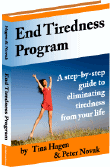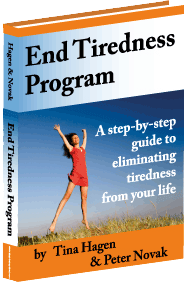Raising The Quality Of Your Sleep
Quality sleep is vital for good health and recovery from fatigue. Here are some tips that will help you get the most out your sleeping hours.
If you are suffering from fatigue, quality sleep can transform your life. Sleep renews the body from the inside out by cleaning and de-toxifying the cells. It is also essential for mental concentration and problem solving. So it is worth putting some effort into creating high quality sleep.
Here’s how to do it:
Create a good sleep routine
It’s best if you can go to bed and wake up at approximately the same time each day. Most people need between 8 and 9 hours of sleep a night. There are individual variations, of course, and you can find out exactly how much sleep you need by allowing yourself to wake naturally (i.e. without an alarm clock) every day for a week.
Even more important than length of sleep is quality of sleep. This means you should aim not to break your sleep cycles with alarm clocks and snooze buttons if possible. If you complete a full sleep cycle, you won’t wake up groggy and disoriented.
[Please see The Stages and Cycles of Sleep for more details.]
Create a winding-down time before sleep
Aim to devote the last hour before bed to relaxation and winding-down time. Prepare for sleep by meditating. Avoid watching television, especially news programs or anything, which is likely to stress or over-excite you. Any reading material should be calming and uplifting.
Take a warm bath and add some Epsom salts (as these contain magnesium which your body will absorb through the skin). You could also take magnesium and calcium capsules.
Arrange your bed and bedroom for sleep
Keep your bedroom for sexual activity and sleep only. Don’t work from your bed or it will not be a place of rest and relaxation for you. Avoid taking distressing or upsetting phone calls in bed as well.
Your bedroom should be as dark as possible, because light will disturb your sleep cycles. You may need to change the drapes or add black-out linings or blinds. If you are bothered by outside noise in your bedroom, then consider double glazing if possible or invest in some comfortable ear plugs. It’s best not to watch television or use a laptop computer in bed, as these can disturb your thoughts before sleep. Finally, remember that the life of a mattress is ten years or less. As you spend a third of your life on it, it is worth changing your mattress as often as you can as a comfortable mattress really helps you to sleep well.
[Please see Bedroom environment for better sleepingfor more details.]
Eat wisely
Your evening meal should be light. If you can, include some tryptophan (which is found in tuna, turkey, lentils, soya beans and milk), which will make you sleepy. Potassium rich foods (e.g. bananas) are also great at inducing sleepiness. As a general rule, avoid eating junk food, fast food or processed food as it tends to be quite a load on your body and it stresses your liver.
Try to avoid skipping meals and dieting; doing so you risk depriving your body of vital nutrition. Aim for small, frequent, and nutritious meals.
[Please see Eating healthy when you are tired for more details.]
Choose your drinks with care
Don’t take any food or drink with caffeine in it after around 4 pm. Remember that caffeine is present in some foods and drinks (e.g. colas) as well as in coffee. Avoid alcohol; especially late in the evening as it will disrupt your sleep cycles.
[Please see Stimulants and tiredness for more details.]
Reduce your stress
Although you cannot control the events of life that may cause you stress, you have a lot of choice over the lifestyle choices that you make. Take up positive stress reduction techniques, such as progressive muscle relaxation, meditation or prayer. Downsize your life if you need to reduce your financial stress.
Practice breathing deeply for at least ten minutes a day to get vital oxygen into your system.
[Please see Tips for dealing with stress for more detail about stress reduction techniques]
Choose herbal remedies rather than prescription medications
Do not use prescription medicine for any longer than absolutely necessary. The reason behind this is that they are addictive on the long run and do nothing to resolve the issues, underlying your sleep problems. Try herbal remedies first, as they are milder in their effect on the body. They may take longer to work, so be patient.
Drink plenty of water
Keeping yourself well hydrated should be a priority if you are suffering from tiredness. Adequate water intake will not only improve your general health, but will also help you to maintain your mental focus. Reduce your liquid intake a couple of hours before going to bed, so yoU don’t wake up during the night with a need to empty your bladder.
[Please see Dehydration and Tiredness for more detail on this point.]
To sum up
There is a lot you can do to improve the quality of your sleep without resorting to prescription medication, though this may be necessary in the short term. As your sleep improves, so will your general health and this will set you on the road to recovery from fatigue.







